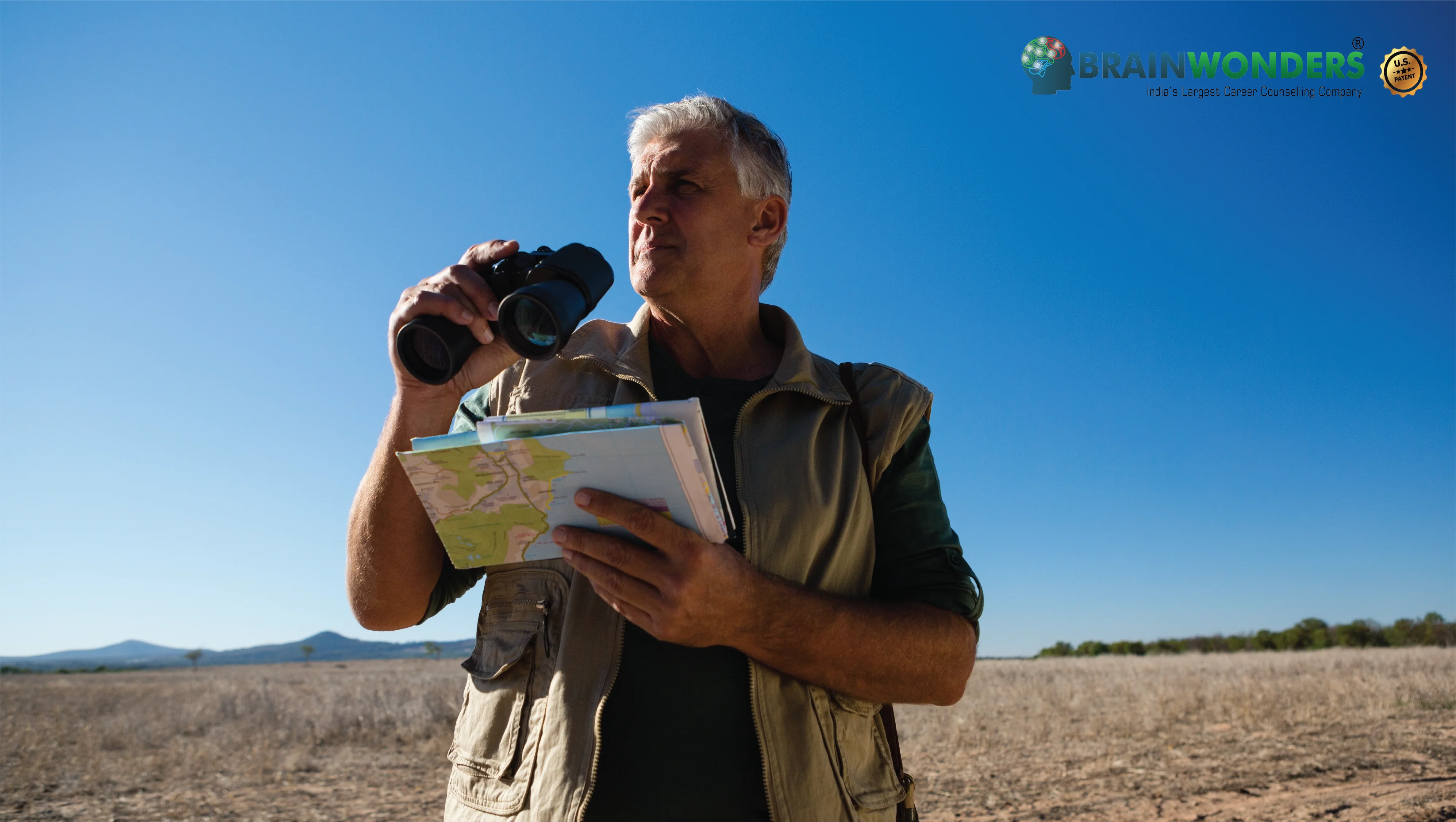How to become a Hydrologists and Geographers
Overview, Courses, Exam, Colleges, Pathways, Salary

Overview
Who is Hydrologists and Geographers ?
Hydrologists focus on understanding water resources' distribution, movement, and quality, including rivers, lakes, groundwater, and rainfall patterns. They collect and analyze data, model water systems, and assess the impact of human activities on water availability and quality. They are crucial in managing water resources, ensuring water supply, and addressing flooding, drought, and water pollution issues.
On the other hand, geographers study the Earth's physical features, climate patterns, and spatial relationships between natural and human phenomena. They examine landforms, vegetation, ecosystems, and human settlements to understand their distribution, interactions, and changes over time. Geographers utilize spatial analysis, mapping, and remote sensing technologies to study the Earth's landscapes and the impact of human activities on the environment.
Hydrologists and Geographers contribute to environmental conservation, sustainable land and water management, urban planning, and natural resource assessment. Their work is vital for understanding and addressing the complex challenges of water resources, climate change, and land use planning.
Typical day at work
What does Hydrologists and Geographers do?
Hydrologists:
- Study the distribution, movement, and properties of water on Earth.
- Collect and analyze precipitation, streamflow, groundwater, and water quality data.
- Use hydrological models and simulations to understand and predict water availability and runoff patterns.
- Assess the impact of human activities, such as agriculture, industry, and urbanization, on water resources.
- Design and implement water management strategies to ensure sustainable water supply and mitigate flooding, droughts, and pollution.
- Research to enhance understanding of hydrological processes and improve water resource management practices.
- Collaborate with engineers, policymakers, and stakeholders to develop effective water management plans and policies.
Geographers:
- Study the Earth's physical features, climate patterns, and the spatial relationships between natural and human phenomena.
- Analyze and interpret geographical data, including maps, satellite imagery, and remote sensing data.
- Investigate the distribution and characteristics of landforms, vegetation, ecosystems, and human settlements.
- Examine the interactions between human activities and the environment, including land use, urbanization, and resource exploitation.
- Use geographic information systems (GIS) and spatial analysis techniques to analyze and visualize spatial patterns and relationships.
- Contribute to urban planning, environmental conservation, and natural resource management efforts.
- Conduct fieldwork, surveys, and interviews to collect primary data and validate findings.
- Engage in research to advance knowledge in geographical sciences and address contemporary environmental challenges.
Hydrologists and Geographers often collaborate on interdisciplinary projects that require understanding the interactions between water systems and the environment. Together, they contribute to sustainable land and water management, environmental conservation, and addressing the challenges posed by climate change and human activities on our planet.
Abilities and Aptitude needed
What are the skills, abilities & aptitude needed to become Hydrologists and Geographers?
To become a hydrologist, skills, abilities, and aptitudes in the following areas are essential:
- Scientific Knowledge: A strong understanding of physical and environmental sciences, including geology, chemistry, and physics.
- Analytical Skills: Analyzing data, conducting statistical analysis, and interpreting complex hydrological models and simulations.
- Fieldwork and Research: Proficiency in conducting field investigations, collecting water samples, and using specialized equipment for measurements and data collection.
- Problem-Solving: Critical thinking skills to identify and solve hydrological issues, such as water resource management, flood prevention, and pollution control.
- Computer Literacy: Proficiency in using hydrological modelling software, GIS (Geographical Information Systems), and data analysis tools.
To become a geographer, the following skills, abilities, and aptitudes are essential:
- Spatial Analysis: The ability to interpret and analyze spatial data, maps, and satellite imagery to understand patterns and processes.
- Research and Data Analysis: Proficiency in collecting and analyzing geographical data using quantitative and qualitative research methods.
- Environmental Knowledge: Understanding physical and human geography, ecosystems, climate change, and their impacts on landscapes and societies.
- Communication: Strong written and verbal communication skills to present research findings, write reports, and collaborate with interdisciplinary teams.
- Geographic Information Systems (GIS): Familiarity with GIS software and its mapping, spatial analysis, and data visualization applications.
Pathways
How to become an Hydrologists and Geographers?
Entrance Exam
Entrance Exam for Hydrologists and Geographers ?
Courses
Which course I can pursue?
Best Colleges
Which are the best colleges to attend to become an Hydrologists and Geographers?
Industries
Which Industries are open for Hydrologists and Geographers?
- Environmental Agencies: Government agencies responsible for environmental management, water resource management, and conservation often employ hydrologists and geographers to assess and monitor natural systems and develop policies.
- Research Institutions: Academic institutions and research organizations conduct studies on various aspects of hydrology and geography, offering opportunities for research positions and contributing to scientific advancements.
- Consulting Firms: Environmental consulting firms hire hydrologists and geographers to conduct environmental assessments, develop land-use plans, and provide expertise on water resource management and environmental impact assessments.
- Energy Sector: Hydrologists assess and manage water resources for hydropower generation, while geographers contribute to site selection for renewable energy projects and environmental impact assessments.
- Non-profit Organizations: Non-governmental organizations (NGOs) focused on environmental conservation, watershed management, and sustainable development employ hydrologists and geographers for research, advocacy, and project implementation.
- Water and Wastewater Management: Hydrologists are crucial in water supply planning, wastewater treatment, and water quality monitoring in public utilities and private water management companies.
- Education and Academia: Hydrologists and geographers can pursue careers in teaching and research at universities, colleges, and educational institutions, sharing knowledge and training the next generation of professionals.
internship
Are there internships available for Hydrologists and Geographers?
there are internships available for hydrologists and geographers. Many organizations, including government agencies, research institutes, environmental consulting firms, and non-profit organizations, offer internship programs in these fields. These internships provide valuable hands-on experience and the opportunity to work on real-world projects under the guidance of experienced professionals. Internships can involve fieldwork, data analysis, research, and the use of specialized software and tools. They offer a chance to network with professionals in the industry and gain practical skills that can enhance future career prospects. Students and recent graduates are encouraged to explore internship opportunities through job portals, professional associations, and the websites of relevant organizations
Career outlook
What does the future look like for Hydrologists and Geographers?
The future outlook for hydrologists and geographers is promising. As climate change intensifies, the demand for professionals in these fields is expected to increase. Hydrologists will play a crucial role in managing water resources, mitigating floods, and addressing water quality issues. Geographers will be in high demand for analyzing spatial data, assessing environmental impacts, and contributing to sustainable development. Technological advancements, such as remote sensing and geospatial technology, will further enhance the capabilities of both disciplines. Overall, the future holds ample opportunities for hydrologists and geographers to make meaningful contributions in addressing pressing environmental challenges.







